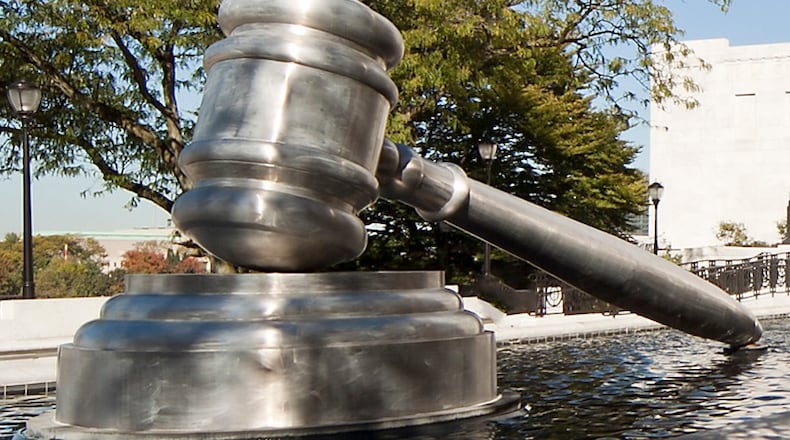Court records indicate a settlement has been reached in the case. Curt Hartman, outside counsel for St. Clair Twp., told the Journal-News they have reached a “settlement in principle” but he can’t discuss the details until it is finalized.
The two sides have intermittently come close to an agreement in the past.
“Generally speaking in litigation nothing forces a settlement like a trial date,” Hartman told the Journal-News. “Which is generally true, it’s not just this case because you go to trial there’s a certain element of the unknown... Each side has an upside, each side has a downside so what a settlement does is it allows resolution of the issue with definitiveness.”
Hamilton officials said they had no comment.
Magistrate Daniel Gehr cancelled a bench trial set for April 21 but was going to issue a ruling on motions by both sides to decide the case in their favor, until they “apprised him we were making good progress in our discussions.”
The cash-strapped township has been fighting with Hamilton over an annexation law the trustees’ lawyer asserts entitles it to 12 years’ worth of compensation for money lost due to the annexations. The law was triggered in 2016 when the city asked the county commissioners to form a “paper township” to fix the fact that boundary adjustment approval wasn’t formalized by the county previously.
In court filings the township asked Gehr to order Hamilton to pay them $10 million including interest for the first five years and they said additional sums would be owed for the final seven years. Hamilton disagreed.
“The township asks this court to order the city to disgorge millions in taxpayer dollars to pay the township for property that the township has not served or relied upon for revenue in decades,” the motion reads. “The basis for the township’s request is an assumption, without proof, of the manner in which the territory was brought into the city, decades ago.”
The lawsuit initially included the county commissioners, county Auditor Roger Reynolds and county Treasurer Nancy Nix. The county defendants were dismissed from the case last July.
The issue involves land Hamilton has annexed over the years from St. Clair, Fairfield, Hanover and Ross townships. In those annexations, the city did not get county commissioner approval for boundary adjustments, meaning residents in those townships should have voted for city council and township trustees, and the townships should have retained some of their property taxes, according to the lawsuit.
The township’s legal counsel, Gary Sheets, who has since retired, filed a writ of mandamus against the city in the Ohio Supreme Court five years ago. The high court denied the writ of mandamus saying while Hamilton owes the township, that form of legal action is not available because the township hadn’t proven how much the city owes.
The six justices — Justice Sharon Kennedy, who hails from Butler County, did not participate — said the township would have a tough task trying to decipher the amount owed.
“According to the deputy county auditor, it would take the ‘largest forensic title exam ever’ to precisely locate the excluded territory,” which is necessary to make the calculation, they wrote.
The justices said the township was welcome to pursue the case in common pleas court and it did in 2019.
Sheets told the Journal-News he wished the city would have settled right after the high court decision.
“When the Supreme Court of Ohio decided that Hamilton owed St. Clair Twp. money they should have sat down with St. Clair Twp. and worked out a settlement. St. Clair Twp. I know would have been amenable to that, however, Hamilton decided to play hardball at taxpayer expense,” Sheets said.
“To the extent Hamilton has paid attorneys to uselessly fight this case, I for one as a citizen of Hamilton am upset that much money has been wasted and couldn’t have been paid to a government entity to help solve this problem the Supreme Court said existed.”
About the Author

